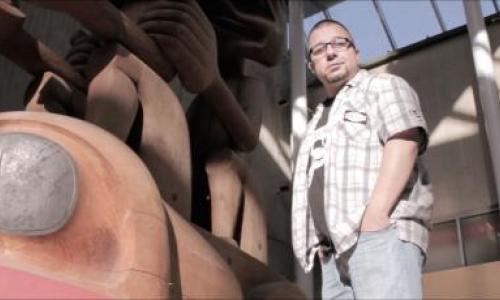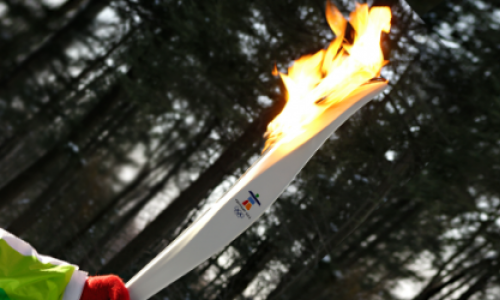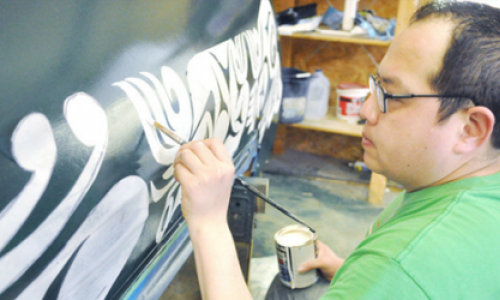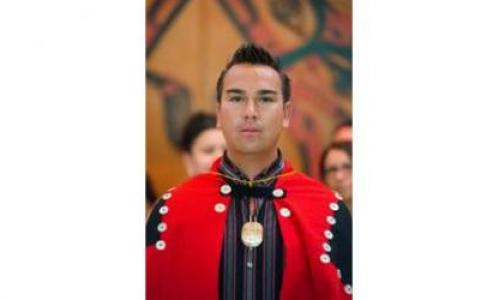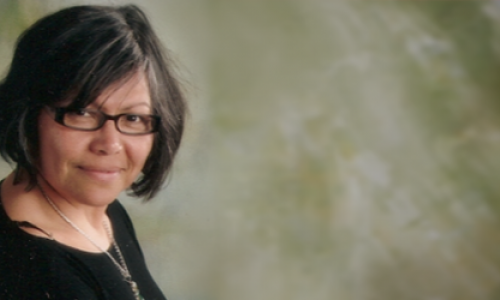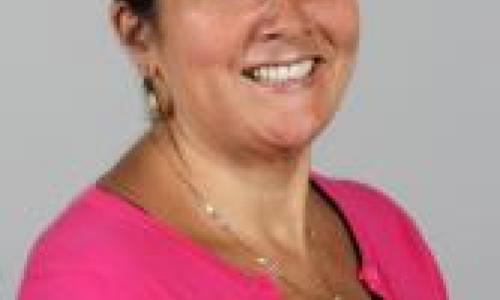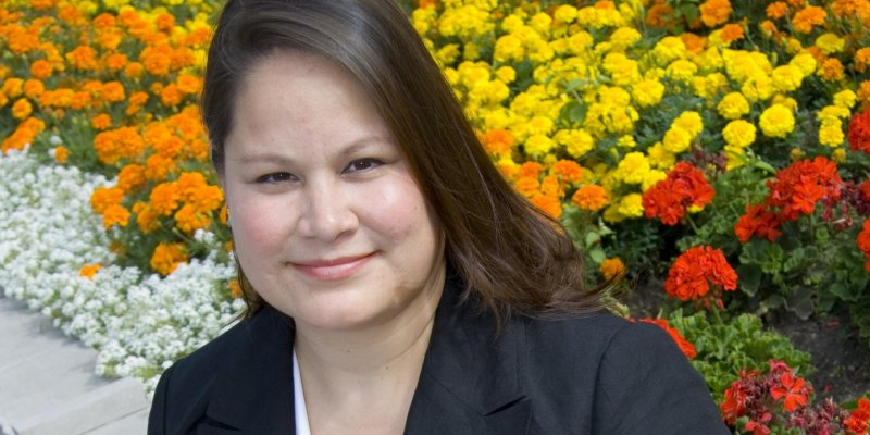
SFU First Nations Student Association Aboriginal Criminology Series
Aboriginal Women in Law - Jodie Lynn Waddilove
Jodie-Lynn Waddilove is an Anishnabe (Ojibway) and Lenni Lenape (Delaware) lawyer from the Munsee-Delaware Nation in southern Ontario.
Her traditional name is “Giim-Mah-Myengun-Kwe” which means Head Chief Wolf Woman. She is a member of the wolf clan.
Jodie-Lynn is the only daughter of Sherry (Deleary) and Jody Waddilove. She, along with her three brothers, were born and raised in their community, where they all still maintain active and close ties with the community.
In 1997, Jodie-Lynn was named as London, Ontario's first “Young Woman of Distinction.”
In 1999, Jodie-Lynn received her Bachelor of Arts degree (B.A.) from the University of Western Ontario.
In 2000, Jodie-Lynn then received her Masters of Arts degree (M.A.) in International Criminology and Law from the University of Sheffield in England. While studying in England, Jodie-Lynn was admitted to the Lincoln’s Inn.
Also, in 2000, Maclean's Magazine named Jodie-Lynn as "One of Canada’s Top 100 Under 30 to watch in the new millennium.”
In 2003, Jodie-Lynn obtained her Bachelors of Laws degree (LL.B.) from the University of Ottawa. She articled with a large firm before being called to the Ontario bar in 2004. Jodie-Lynn was called to the Alberta bar in 2006.
Throughout her academic career, Jodie-Lynn has received many scholarships and awards recognizing her academic achievements, community service and her role as a young leader.
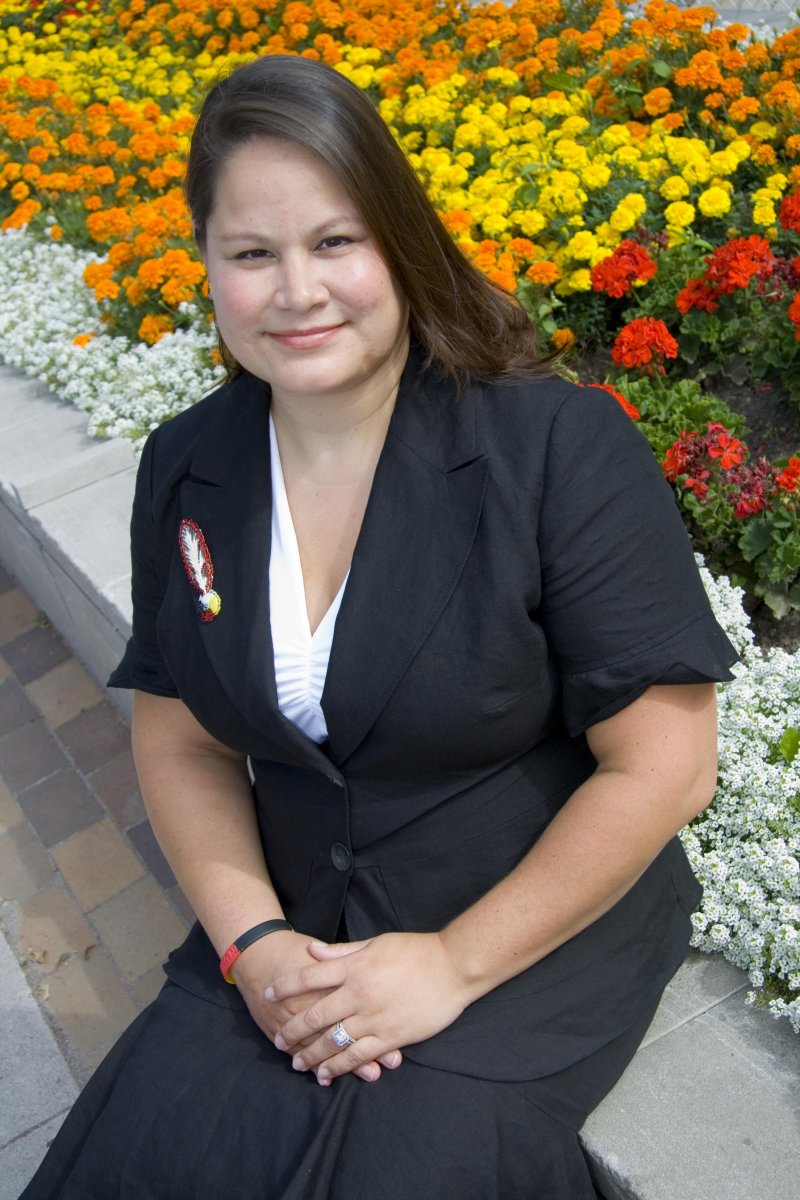
In 2004 and during her articles, Jodie-Lynn was elected as the youngest Councillor for her First Nation community – the Munsee-Delaware Nation.
Also in 2004, Jodie-Lynn served as Assistant Commission Counsel for the Ipperwash Inquiry. The Commission's mandate was to inquire and report on events surrounding the death of Dudley George, who was shot in 1995 during a protest by First Nations at Ipperwash Provincial Park.
After serving on the Commission, Jodie-Lynn moved to Calgary, Alberta and returned to private practice, in particular, focussing in the areas of Aboriginal treaty rights litigation and oil and gas.
In March of 2006, Jodie-Lynn was named a National Aboriginal Role Model by the National Aboriginal Health Organization.
Jodie-Lynn has and continues to speak to many First Nations communities and organizations across Canada on issues relating to: youth, women and First Nations governance issues. She frequently speaks as a keynote speaker and or presenter at various Aboriginal focussed conferences or gatherings.
Jodie-Lynn has never consumed any drugs or alcohol and promotes a healthy and proud lifestyle to Aboriginal youth. Jodie-Lynn is also a jingle dress dancer and is learning to speak the Lenape and Anishinabe languages.
In 2007, Jodie-Lynn joined the Ministry of the Attorney General (Ontario) in particular, the Crown Law Office – Civil in Toronto. She is currently on secondment with the Ministry of Community Safety and Correctional Services, doing Police Service Act prosecutions for the Ontario Provincial Police at their headquarters in Orillia. She travels and speaks frequently on this area.
On December 22, 2009, Jodie-Lynn proudly carried the Olympic Torch through her home community, the Munsee-Delaware Nation as it's one and only official Olympic Torchbearer. She was 1 of 12,000 proud Canadians who helped carry the Olympic flame as it proceeded along the Olympic Torch Relay to the Vancouver 2010 Olympic Games.
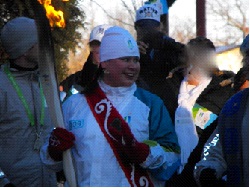
In her spare time, Jodie-Lynn enjoys spending time with her husband, Joshua A. Corbiere (from Wikwemikong Unceded Nation), her son Bode, and extended family and friends.
In Her Own Words: My Story
I was born and raised on a small First Nation in southwestern Ontario. I first left my community when I was 23 years old, when I attended University in England. My community is a very small rural First Nation, with just over 500 members total, only of which about 200 live on reserve. There are 5 main roads. There is no school, and no library or stores. We do have an outdoor park, a new community centre that opened last year and some office buildings. My parents, brothers and most of my extended family still live and work there. Despite my living and working in different cities, it will always be my home. I maintain a close cultural and emotional tie to the community, the land and the people there.
I first realized I wanted to become a lawyer when I was ten years old. I did not know any lawyers or legal professionals growing up. It is still a big accomplishment for the young people in my community to graduate high school and go onto obtain a post-secondary education. My parents did not have post-secondary education, nor did I know anyone who went to University. I had only seen lawyers on television and from what I seen, I realized that by being a lawyer I could obtain an education and skill set that would help my community.
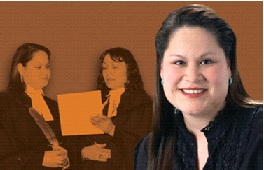
My personal experiences have shaped what I believe law and justice should be. My formal education has taught me what law and justice is in the Canadian mainstream society. My ability to distinguish the two, tells me there is a big difference between what it is for the people in my First Nation versus what I learned in law school. Culturally, I have a different concept of what law is and what justice means. This is not reflected in the law that I practice, but is an understanding I received from traditional teachings and the cultural practices of my Nation.
In my spare time, I volunteer with many grassroots First Nations organizations and communities. I feel strongly about two things -- setting a positive example for First Nation youth and helping the same youth realize their own potential and dreams. I want to see and work with more successful Aboriginal youth.
Who are the people of the Munsee-Delaware Nation?
In their own language, the Lenape referred to themselves as Lenni Lenape means "Human Beings" or the "Real People. The Lenape people were divided into three dialectal divisions, which later became the basis for the three Clans of the Lenape. These divisions were the Monsi (Munsee) or Wolf, the Unami or Turtle, and the Unilactigo or Turkey.
The term "Delaware" was used by the English, who named the people for their territory by the Delaware River.
The first recorded contact with Europeans and people presumed to have been the Lenape was in 1524. The explorer Giovanni da Verrazzano was greeted by local Lenape who came by canoe, after his ship entered what is now called Lower New York Bay.
The Lenape’s traditional territory included what is now New Jersey, eastern Pennsylvania, southeastern New York state, northern Delaware and a small section of southeastern Connecticut.
Members of the Munsee branch of the Lenape (Delaware) Nation arrived in Canada in the area in the eighteenth century. The Lieutenant-Governor, John Graves Simcoe, encouraged the Munsee to settle there although Chippewa were already established there. In 1819 the Chippewa of the Thames reserve was established, and in 1840 the Munsee and the Chippewa finally reached an agreement to share the land.
Today, there are two Nations of Lenape people in Canada – the Munsee Delaware Nation and the Delaware Nation.
Jodie-Lynn Waddilove is a member of the Munsee-Delaware Nation, which had a registered population of 524 in April 2004, of whom 163 lived on the reserve. By January 2011, the nation had a total registered population of 555, of whom 145 lived on the reserve.









